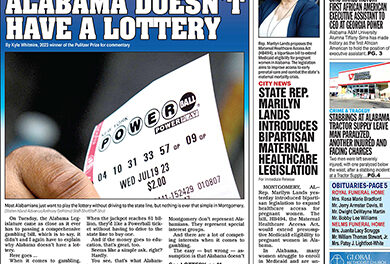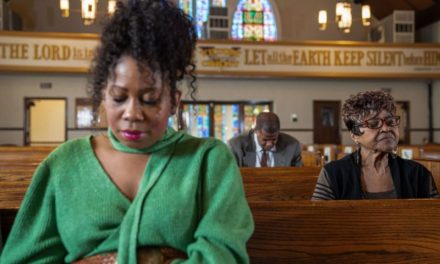By Martha Dawson
Public health officials have spent the past two years urging people to get vaccinated and boosted against COVID-19, but despite free and available vaccines, many have yet to take their advice. Now, we are entering a new phase. With the end of the federal Public Health Emergency (PHE) on May 11, the government will no longer pay for COVID-19 tests or vaccines. In addition, World Health Organization (WHO) Director-General Dr. Tedros Adhanom Ghebreyesus announced earlier this month that his organization will lift the COVID-19 emergency status.
Even so, COVID-19 persists with new variants emerging and infections in the U.S. still numbering more than 77,000 per week. We need a new public health framework that can safeguard our communities, especially those most at risk, from the ravages of the virus. In healthcare, we talk about a community-based approach often, which is especially necessary when trying to reach those most at risk, including African Americans.
COVID-19 remains the third-leading cause of death among Black Americans nationwide, attributed partly to pre-existing medical conditions and higher exposure risks. According to CDC data, Black Americans are 2.1 times more likely to be hospitalized for COVID-19 and 1.6 times more likely to die due to infection than White Americans.
The end of the federal PHE calls for a turning point in our work. In reaching communities, collaborating across local, state and federal levels to promote vaccination is an approach that works—as generations of school vaccinations have demonstrated—and is the approach called for now.
Vaccination rates among Black Americans have improved compared to the weeks that followed the rollout of the first COVID-19 vaccines. Still, many remain unvaccinated or not up to date with their COVID-19 immunizations and boosters. From conversations I have had with members of our community, among the many reasons lie seeds of mistrust in the government, confusion and mis-and disinformation about the COVID-19 vaccine. In 2023, we are still struggling, with the CDC estimating that less than 30 percent of Black American adults have received a COVID-19 bivalent booster shot.
I believe that one way to build confidence and protect more people is to offer and educate our communities about the diverse portfolio of vaccine options we are now fortunate to have in this ongoing fight. While the mRNA vaccines were first to market and helped protect millions of Americans, from conversations I have had, many people cannot or will not receive them for various clinical or personal reasons. That is why for some, a traditional, protein-based COVID-19 vaccine may have a vital role to play. As I testified before the FDA’s Vaccines and Related Biological Products Advisory Committee (VRBPAC), COVID-19 vaccines developed using a long-standing, well-understood technology – the same used for shingles and hepatitis B – adds the traditionally based weapon that, what I believe, our COVID-19 arsenal needs to ensure vaccine choice and increase vaccination and booster rates.
Another hurdle we need to overcome is simple exhaustion, from both the public and health care providers. We are entering the fourth year of a crisis we were initially told might last weeks. A report by the International Council of Nurses (ICN) suggests we will need up to 13 million more nurses over the next decade to fill a growing shortage brought on by the pandemic. As a nurse who leads the National Black Nurses Association (NBNA), whose members tirelessly work to educate, test and vaccinate people every day, I can clearly attest to COVID-19 fatigue within myself and in our members. Yet, the fight against COVID-19 continues, we are committed, and we cannot afford to lower our guard. We understand this virus is mutating and the risk to public health is ongoing.
Our nation’s nurses have a critical role to play in COVID-19 vaccine education and combatting hesitancy. Gallup reports that nurses are more trusted by Americans than any other profession. As warriors on the front lines, we should have a seat at the table in the efforts to offer more vaccine options, debunk misinformation, and create solutions that help protect our health. We must help our communities understand that getting vaccinated against COVID-19 will be ongoing and that it is “not just about me, but about we.”
As the president and CEO of the NBNA, I represent more than 300,000 nurses nationwide. As a practitioner, I represent one caregiver and one voice. In each of these capacities, I feel as much urgency today as I did in March 2020. The danger remains, and the end of the federal PHE opens a new period. To help protect public health for everyone, each player in the healthcare system needs a plan to educate, advocate, and vaccinate. At the community level, I encourage everyone to know what their vaccine options are and to lean on trusted community members, such as nurses, to understand how best to help protect themselves and their families. The ‘emergency’ may be over, but we still have much more work to do.
Martha Dawson, DNP, MSN, RN, FAAN, FACHE, is president of the National Black Nurses Association and Associate Professor at the University of Alabama at Birmingham School of Nursing. This commentary was written with editorial support from Novavax.
The post For COVID-19 vaccination, the emergency may be over, but the fight continues appeared first on AFRO American Newspapers .











